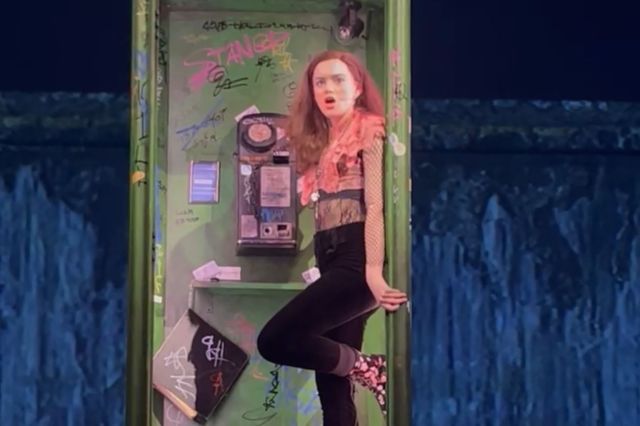Bacchai
Until relatively recently, Greek drama had a reputation for being worthy but slightly dull. The fact that we can now look at it through new eyes is due, in a large part, to the work of Peter Hall, who has, throughout his career, championed these texts.
In reviving the Bacchai, Euripedes’ last and most shocking work, Hall has once again drawn our attention to the enduring appeal of this drama, helped considerably by Colin Teevan‘s lively translation. Gone are the harsh cadences that have helped shaped Greek tragedy’s reputation, instead, we have a work that is astonishingly modern. The clash between the ordered society ruled by the authoritarian Pentheus and the hedonsistic cult of the worshippers of Dionysus is one that has many parallels with our life. And Dionsysus’ exhortation to be true to our inner desires is something all can understand in this Freudian age.
But not even Hall could have anticipated quite how relevant the text is today. The description of how an ordered society in the West can be disrupted by a force from the East has a particular resonance since last September, while the references to the malign influences of too many foreigners are even more topical. The translation plays up the timelessness of the text: the city of Thebes (where it’s ostensibly set) is never named – the themes of this play could be applied anywhere.
Harrison Birtwistle‘s score – a heady compound of percussion and woodwind – captures the cultural clash, complements the wild rhythms of the dancing Bacchai and enhances the overall effect of this production. And from the company, there are some terrific performances.
A veteran of Hall’s Greek forays, Greg Hicks must feel by now that the requisite mask is like a second skin. Certainly, he proves himself a consummate performer in this form of drama, and here he relishes the opportunity to play a variety of parts, including the showman Dionysus and the old seer Teiresias (in a double act with the David Ryall‘s Cadmus, reminiscing like an Attic Falstaff and Shallow). Undoubtedly the play’s highlight is the scene where Dionsysus disguises Pentheus before sending him to his grisly death. Hicks fussily disguises his malevolent intent – he is as perfectly mannered as a fashion designer before a major show as he adjusts Pentheus’s female attire.
Amongst other strong contributions, William Houston portrays an almost hysterical Pentheus, scarcely able to believe in the collapse of his powers, and also Pentheus’s mother, Agave, the unwitting instrument of her son’s death, and Ryall imbues Cadmus with a degree of both humour and sadness.
Above all, Bacchai is masterly storytelling. The Greek myths are stories that touch just about every aspect of western literature, but more than that, the still-relevant real emotions and human conflicts. What Hall has done is strip this story to the barest bones while emphasising those issues with the most resonance for modern audiences. It’s a conjuring trick worthy of Dionysus himself.












